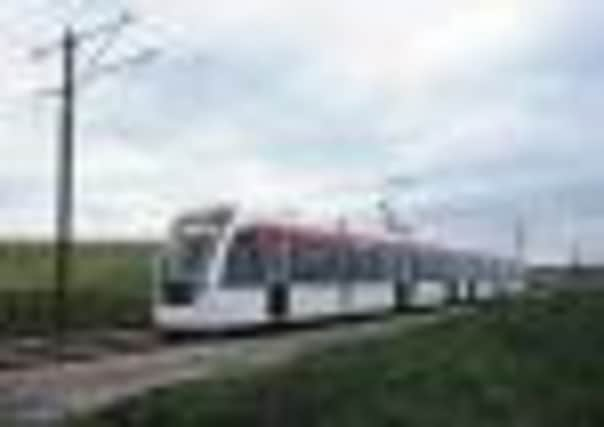Leaders: Tram anger may return further down the line | Budget dilemma for Tories


But yesterday, albeit in a symbolic way, it did come. A tram containing Scottish Government and Edinburgh Council dignitaries pottered 2.8 kilometres up the line from the trams’ Gogar depot to the airport, and then trundled 2.8 kilometres back again.
Though some may think the choice of this little inaugural run was dictated by the need to ensure as few of the many citizens angered by the fiasco of expense and delays could be there to protest and shake fists, in fact it merely happens to be the first bit of the line to be finished and declared fit for use.
Advertisement
Hide AdAdvertisement
Hide AdOf course, it will be a year yet before the line to the city centre is completed and ready for business, although this part of the line is due to be open to passengers next month. The good news, perhaps for the first time in the tram’s troubled history, is that construction is either ahead of, or on, schedule and the much revised budget of £776 million should not be exceeded.
Civic leaders have been busy trying to soothe inflamed passions by promising that in line with the city’s concessionary public transport scheme, older people will be able to use the tram for free. And indeed the sleek look of the tram will send the message of a modern city eagerly embracing the green transport of the future.
In other British city tram projects, public anger at the disruption caused in the construction phase has largely melted away. But in Edinburgh’s case, only half of the originally planned route has been built at 50 per cent more cost than was first estimated, meaning that the line is three times more expensive than planned and is three years late in delivery.
The original reason for building it has also disappeared. It was regarded as a necessity for moving thousands of workers from Leith, where hundreds of new apartments were expected to be built, to the rapidly expanding office complexes at Edinburgh Park by the Gyle.
That was, however, before the financial crisis and subsequent recession killed off the waterfront property boom and extinguished much of the envisaged jobs growth. The much shorter route will mean fewer passengers and therefore it is likely that the expected revenue will fall. It is possible that taxpayers will continue to bail out the tram project.
In the case of the city’s other expensive and much-delayed public building project – the Scottish parliament – disgust at its mismanagement has faded to be replaced, if not by affection, but at least by acceptance of Holyrood as part of Edinburgh’s life. But annual reports of the cost of keeping the tram going could be a permanent reminder to citizens of a scheme whose scars run very deep.
Budget dilemma for Tories
Independent bodies that scrutinise or assess government policies and their delivery tend to stress their independence, which is very annoying for governments, but valuable for taxpayers. Robert Chote, director of the Office for Budget Responsibility (OBR), has done precisely that in a sharply worded letter to Prime Minister David Cameron.
In a speech this week on the economy, Mr Cameron said the taxpayers’ watchdog had made it “absolutely clear” that public spending cuts and tax rises were not responsible for Britain’s weak economy. No, said Mr Chote yesterday, the OBR has made it clear for a number of years that austerity, along with a weak global economy and eurozone uncertainty, is dampening the economy and reducing growth.
Advertisement
Hide AdAdvertisement
Hide AdMr Chote will be aware that this is an acutely sensitive time for him to deliver this rebuke.
Chancellor George Osborne is due to deliver a budget in less than two weeks. All the more credit, then, to Mr Chote for his refusal to be used as a rubber-stamper of government policies.
This, however, leaves Messrs Cameron and Osborne in a bit of a dilemma. Do they stick to their present austerity course and be accused of pig-headed stubbornness?
Or do they change course and adopt some growth-stimulating measures, either by tax cuts or infrastructure spending, and face jeers of having performed a big U-turn?
They should be less concerned by personal loss of face than by national loss of growth. Very basic political calculation should lead them to that conclusion. Voters in 2015 are more likely to re-elect a government that is beginning to deliver jobs and rising incomes than one that is not.